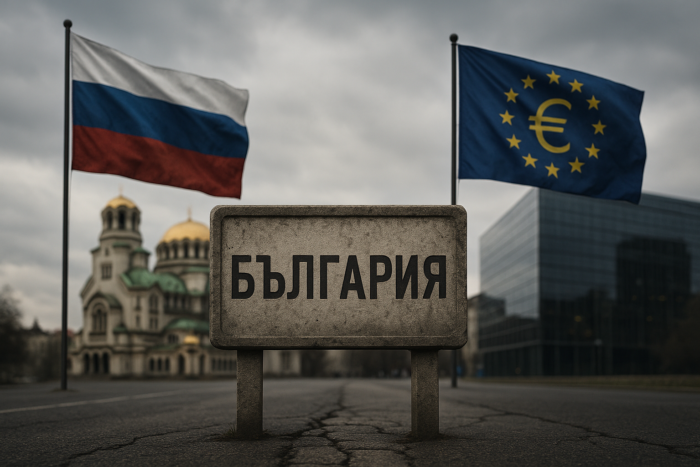The Bulgarian political party Revival filed a lawsuit at the European Union Court of Justice challenging Bulgaria’s accession to the eurozone while simultaneously preparing a major protest aimed at forcing the government to resign this Saturday. On 25 September 2025, Novinite reported that Revival party leader Kostadin Kostadinov submitted the legal challenge to the Court of Justice of the European Union in Luxembourg, contesting the legality of Bulgaria’s decision to join the euro currency. The article begins:
The Bulgarian political party “Revival” has initiated legal action in Luxembourg, challenging the country’s accession to the eurozone. The lawsuit, submitted to the Court of Justice of the European Union, contests the legality of Bulgaria’s decision to join the euro, with party leader Kostadin Kostadinov claiming that the country does not meet the necessary criteria and that the ruling party’s actions breach European treaties. In parallel, “Revival” is mobilizing a new protest, set for this Saturday, aimed at forcing the government to resign. Kostadinov spoke to residents in Silistra, highlighting tensions between former Prime Minister Boyko Borissov and influential businessman and politician Delyan Peevski as a central issue in the country’s political landscape.
Revival (Bulgarian: Възраждане) is a far-right, ultranationalist political party in Bulgaria, founded on 2 August 2014 and led by Kostadin Kostadinov. It blends national conservatism, right-wing populism, and strong Euroscepticism, with a platform that opposes NATO membership, criticizes EU influence, and foregrounds cultural identity and sovereignty.
Key Points
- Revival party leader Kostadin Kostadinov submitted a lawsuit to the Court of Justice of the European Union claiming Bulgaria does not meet the necessary criteria for eurozone accession.
- The legal challenge contests that the ruling party’s actions regarding euro adoption breach European treaties and violate the legality of Bulgaria’s decision to join the currency union.
- Revival is organizing a protest scheduled for Saturday with the stated goal of forcing the current Bulgarian government to resign from power.
- Kostadinov raised the possibility of new elections occurring either by the end of this year or at the beginning of next year, stressing that high voter turnout is essential to prevent corporate influence from shaping Bulgaria’s future.
How the Global National Conservative Alliance Opposes EU Integration
The Global National Conservative Alliance represents a significant shift toward nationalist and protectionist agendas united by opposition to global institutions, particularly the European Union. The Heritage Foundation convened a closed-door workshop in March 2025 to discuss proposals for dismantling core EU institutions, featuring a paper by Hungarian government-backed MCC and Polish group Ordo Iuris entitled “The Great Reset: Restoring Member State Sovereignty in the 21st Century.” The proposal claims the “EU is evolving into a quasi-federal state, limiting national decision-making power” and advocates renaming it the European Community of Nations while eliminating the European Commission and European Court of Justice. Heritage Foundation president Kevin Roberts has explicitly called for Europeans to “reclaim sovereignty” from Brussels, while the foundation holds private meetings with far-right European politicians from Hungary and Czechia who oppose EU climate policies.
Post-Brexit Euroscepticism among GNCA members aims not at leaving the EU but at fundamentally reversing European integration, seeking to curtail the powers of EU institutions and return to an intergovernmentally-organized Europe engaging primarily in economic cooperation. The Patriots for Europe group, influenced by Viktor Orbán’s Fidesz and Marine Le Pen’s National Rally, advocates for what Jean-Paul Garraud describes as “a return to what was there before Maastricht”—a European Economic Community with very limited powers prior to the 1992 treaty that expanded EU competencies. At CPAC Hungary 2023, Orbán proclaimed Hungary had been “completely healed” of “progressive dominance” and urged activists to “take back the institutions in Washington and Brussels,” presenting Hungary’s “illiberal democracy” model as an alternative to the Western liberal order.
Opposition to EU integration manifests through both institutional obstruction and ideological alignment. Dutch far-right party Forum for Democracy has petitioned for ending EU sanctions on Russia, arguing the EU “created an energy crisis by unilaterally closing down one of its biggest gas pipelines” and calling for opening Nord Stream 2. The European Conservatives and Reformists Group, though presenting itself with “Eurorealist” rhetoric, opposes what it terms a “European super-state” and “automatic deepening of EU political integration,” focusing on “preservation of national identities” while criticizing “overly ideological green climate policy.” Far-right parties now hold over a quarter of European Parliament seats, enabling them to influence the balance of power within the EU’s consensus-oriented political system, with Hungary hosting CPAC for the fourth consecutive year in May 2025, branded as “The Age of Patriots,” serving as a key platform uniting transatlantic opposition to EU integration.
External References:
• Stiftung Wissenschaft und Politik: The Creeping Integration of Far-right Parties in Europe
• International Bar Association: The year of elections: The rise of Europe’s far right
• Groupe d’études géopolitiques: Spelling out the European center-right’s dilemma
Disclaimer: The Global Influence Operations Report (GIOR) utilizes AI throughout the posting process, including the generation of summaries for news items, introductions, key points, and, often, the “context” section. We recommend verifying all information before use. Additionally, all images are generated using AI and are intended solely for illustrative purposes. While they represent the events or individuals discussed, they should not be interpreted as real-world photography.









